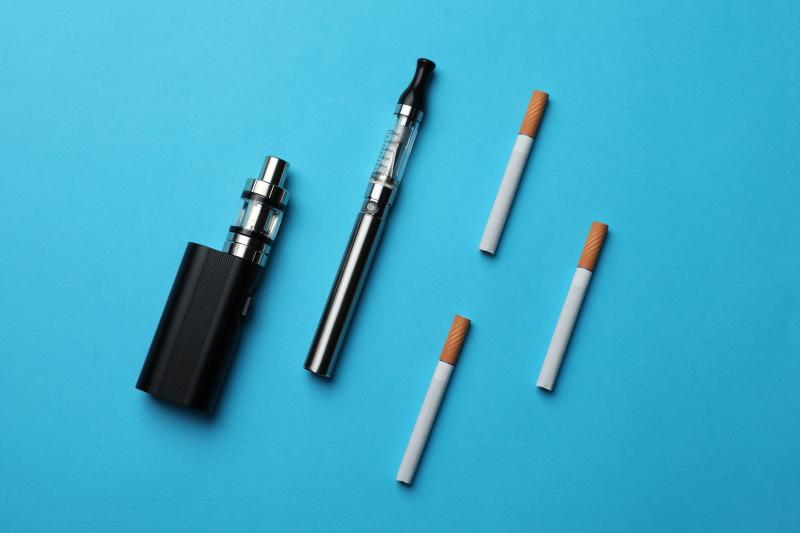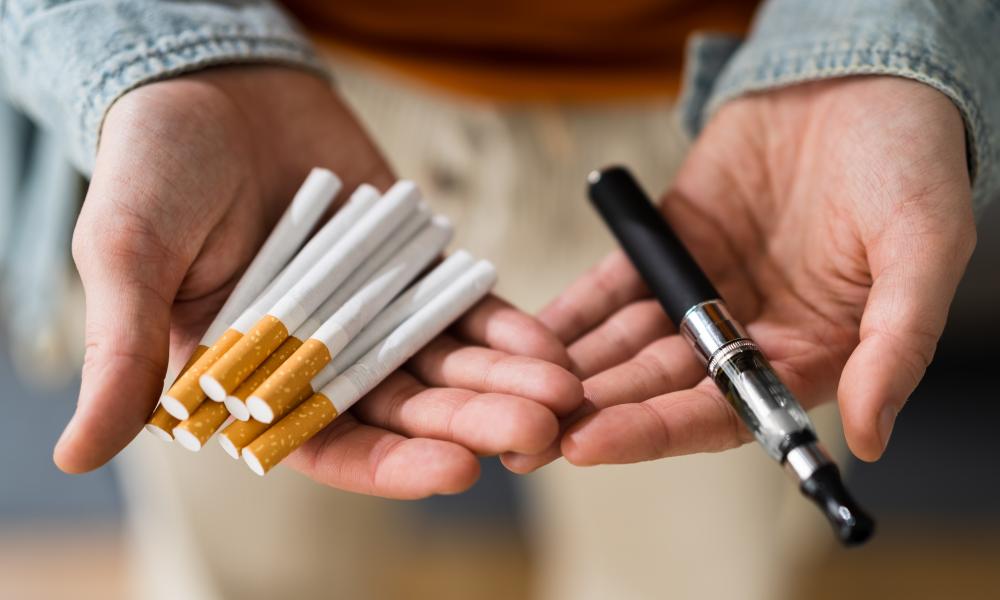

In this blog, Louise O’Connor, a senior research assistant at the Institute of Public Health, discusses what measures could be introduced to decrease the appeal of nicotine inhaling products to young people, and what the Irish government can do to reach our tobacco endgame target of <5%.
On 24 November 2023, the Department of Health in Ireland launched a public consultation to help inform future regulation of tobacco and nicotine inhaling products.
The consultation covers seven areas for which new legislation would be needed:
- Point of sale display
- Appearance of nicotine inhaling products
- Flavours
- Vaping restrictions
- Proxy sales
- Smoking in outdoor dining areas
- Raising the legal age of sale for tobacco
The Institute of Public Health (IPH) developed a response to this consultation in recognition of Ireland’s target to reduce tobacco use to less than 5%.
IPH seeks to support the development of evidence-informed and equity-focused tobacco control in Ireland and Northern Ireland. IPH recently responded to the UK government and devolved administrations’ consultation ‘Creating a smokefree generation and tackling youth vaping’ and contributed to the mid-term and end-of-term review of the Northern Ireland Tobacco Strategy.
Ireland continues to experience an epidemic of tobacco-related illness, disability, and death. In 2016, there were 33,615 tobacco-related inpatient hospital admissions, with an estimated cost of €172 million. Smoking prevalence among adults in Ireland is no longer decreasing and is now static at 18%. This suggests that the government’s 2025 endgame target (<5%) will not be met, and a more robust approach to tobacco control is needed.
Data from the 2018 Health Behaviour in School-aged Children (HBSC) Survey found that 22% of 12-17-year-olds reported having ever used e-cigarettes, with 9% having used e-cigarettes in the past 30 days. It is expected that the new 2024 HBSC Survey results will show even higher numbers of children regularly using e-cigarettes, in line with patterns seen internationally.
This is of concern as e-cigarette use is not without harm and there is a growing body of evidence to suggest that e-cigarette use increases the probability of subsequent tobacco use. Therefore, measures are required to reduce the appeal, accessibility, and affordability of e-cigarettes to children.
Tobacco regulation
IPH strongly supports the introduction of legislation to create a smoke-free generation on the island of Ireland and recommends:
- Introducing a range of tobacco endgame measures, including further regulation of nicotine concentrations and product packaging
- Increasing the minimum legal age of sale for tobacco products to 21, with a commitment to ultimately prohibit tobacco sales to anyone born after 2009
- Adoption of a comprehensive pricing strategy, including taxation and minimum unit pricing of tobacco and e-cigarette products
- Application of place-based approaches to reduce the accessibility of tobacco utilising the recently approved licensing system
- Investment in workforce capacity and resources for enforcement within the HSE, local councils, and An Garda Síochána
- Introducing a legal requirement for all government departments and elected officials in Ireland to report on compliance with Article 5.3 of the World Health Organization Framework Convention on Tobacco Control
- Introducing regulations to create smoke-free outdoor dining areas.
E-cigarette regulation
IPH suggests e-cigarette regulation that focusses on reducing the appeal and accessibility of e-cigarettes to children, including:
- Keeping e-cigarette products behind the counter and prohibiting in-store marketing and promotional materials
- Introducing further regulation on the marketing and sale of e-cigarettes online
- Prohibiting the use of all imagery, including animations/cartoons, colouring and branding for both e-cigarette packaging and device
- Restricting e-cigarette flavours, including flavour descriptors
- Adopting a comprehensive strategy on reducing retail outlet density for tobacco prior to any consideration of exemptions for specialist vape shops
- Introducing progressive e-cigarette taxation targeted to products preferred by young people, but maintaining a price differential through consistent increases in tobacco taxation
Resourcing change management, communications, evaluation, and monitoring systems to assess policy impacts on children, tobacco users, dual users, and e-cigarette only users.
Stop Smoking Supports
For support and advice to stop smoking or to help a loved one stop smoking, please contact:
QUIT (Ireland)
StopSmokingNI (Northern Ireland)
Other Resources
The consultation report for 'Further Regulation of Tobacco and Nicotine Inhaling Products’ is awaited and will be published on the Department of Health’s website: https://www.gov.ie/en/consultation/a6f8f-public-consultation-on-further-regulation-of-tobacco-and-nicotine-inhaling-products/#:~:text=This%20consultation%20looks%20at%20what,nicotine%20inhaling%20products%20in%20shops


